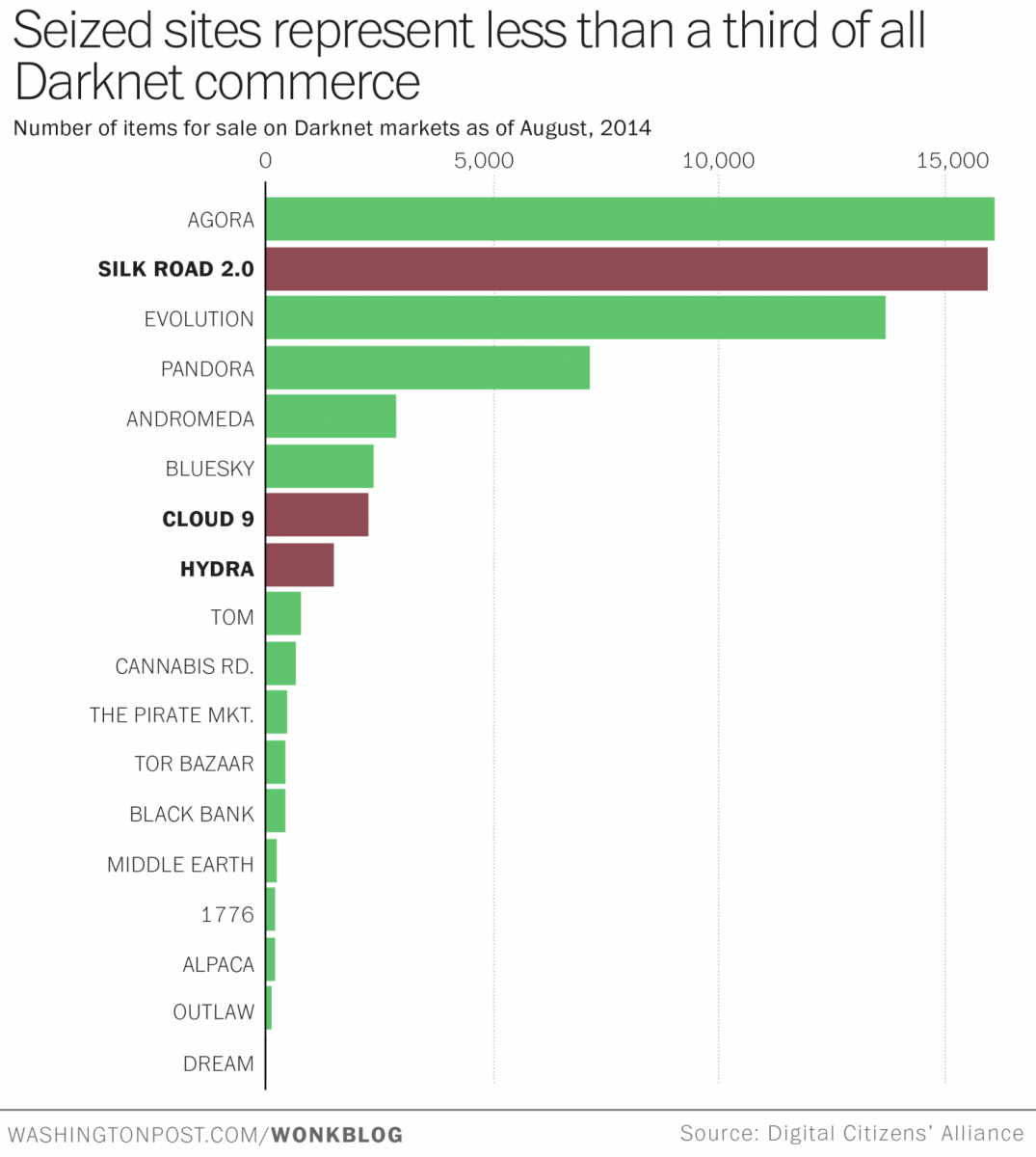
TThe FBI promises a perpetual, futile drug war as it shuts down Silk Road 2.0he FBI promises a perpetual, futile drug war as it shuts down Silk Road 2.0
Christopher Ingraham
Today, the FBI seized the Darknet market Silk Road 2.0 and arrested its alleged operator, Blake Benthall. The former SpaceX employee now faces a mandatory minimum sentence of 10 years for "conspiring to commit narcotics trafficking," and could end up behind bars for the rest of this life.
The website DeepDotWeb has confirmed that two other Darknet markets, Hydra and Cloud 9, have also been seized by the FBI. But the remaining Darknet markets -- and there are a lot of them -- appear to be functioning normally.
It's possible other markets may come down soon, or that they are already under the control of the FBI. But if this latest operation is restricted to just the three sites named above, it would affect only a fraction - anywhere from a quarter to a third - of total Darknet commerce.
In August of this year, the group Digital Citizens' Alliance issued a report on the size of Darknet markets, including the number of items for sale on each. All told, Silk Road 2.0, Hydra and Cloud 9 accounted for roughly 20,000 out of 66,000 listings, including drugs and other items.
Silk Road 2.0 is the largest of the three seized sites, but a recent story by The Economist suggest that its overall Darknet market share has shrunk since August. It's also very likely that a number of other Darknet markets have sprung up since then, and that the existing markets have boosted the number of items for sale.
All told, the latest operation represents a much smaller share of the overall Darknet market than the original Silk Road bust last year. Back then, Silk Road was the only major player in the game. But the Darknet economy rebounded from that set back, growing to more than double its original size within a year. There's currently no reason to expect that the same thing won't happen again this time.
In the FBI's statement, U.S. Attorney Preet Bharara said "Those looking to follow in the footsteps of alleged cybercriminals should understand that we will return as many times as necessary to shut down noxious online criminal bazaars. We don’t get tired."
In essence, this is nothing more than a promise of an endless arms race between the FBI and Darknet administrators. It's understandable that the FBI is going to pursue to biggest facilitators of drug sales -- which are still illegal at the federal level -- but it' stills a throwback to the darkest days of the drug war, when law enforcement's relentless focus on "supply reduction," shutting down drug sellers and manufacturers, fueled a surge in crime and had, studies showed, no impact on overall drug use trends.
Much of the rhetoric coming out of the federal government recently, on the other hand, has been focused on the flip side of that coin: demand reduction, including drug use prevention and treatment measures. These measures largely embrace the notion that drug use is a fact of modern life, and that the best way to address it is to focus on eliminating the harms associated with it.

